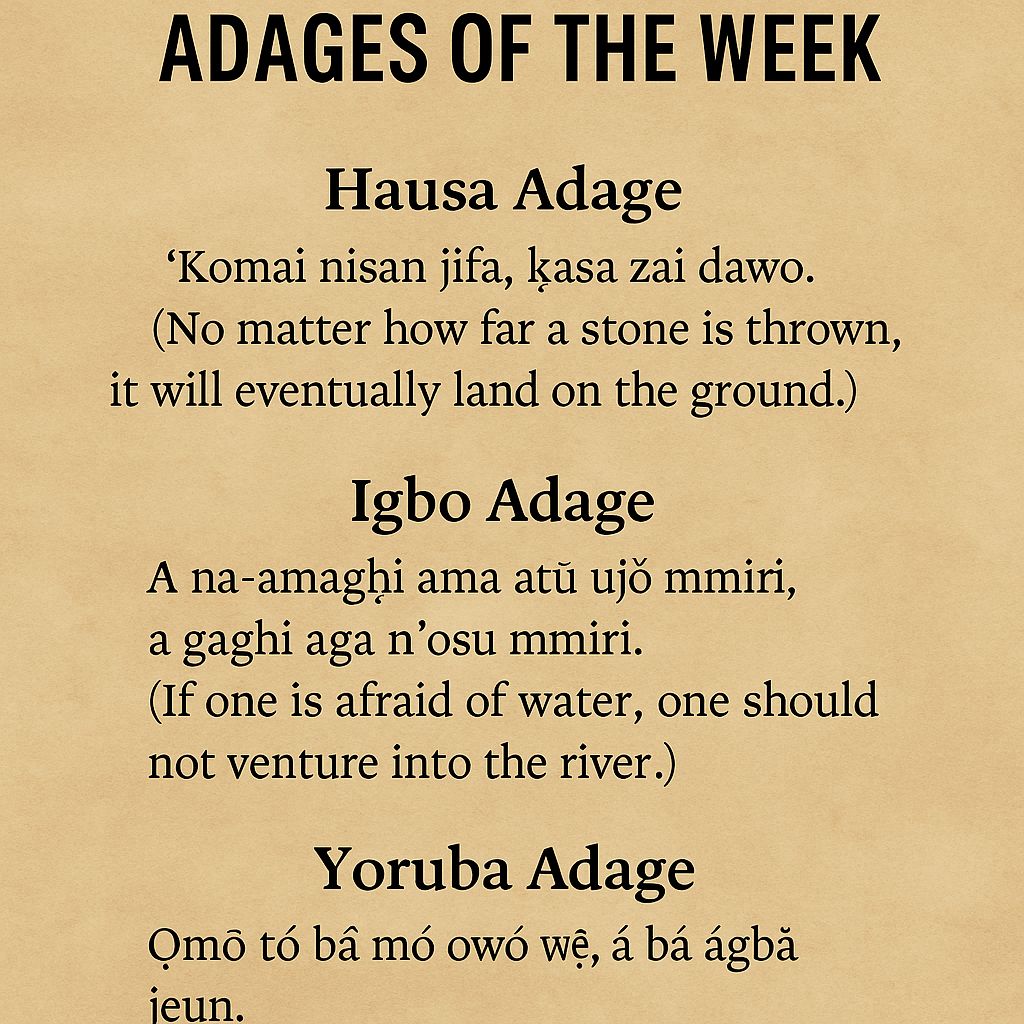The Power of Patience: Why Good Things Take Time
Introduction: A World in a Hurry
We live in an age where everything is at our fingertips. A meal can be delivered in minutes, a message can cross oceans in seconds, and a business can rise or collapse in days. Social media has given us instant likes, instant validation, and a constant race for speed. Yet in this rush, we are losing something vital — patience.
Patience, once celebrated as a strength, is now dismissed as outdated. But history, culture, and lived experience all remind us that the best things in life do not come instantly. As an old African saying goes, “A tree does not bear fruit the day it is planted.”
This article reflects on why patience matters now more than ever, how it shapes families, communities, and leaders, and why both Africans at home and in the diaspora must reclaim this timeless virtue.
Why Modern Life Kills Patience
1. The Speed Culture of Social Media
Social media thrives on immediacy. With every scroll, we see snapshots of success — a young entrepreneur who “made it overnight,” or a couple traveling the world in luxury. Rarely do we see the years of struggle behind those photos. This creates a dangerous illusion: that results should be instant.
Impatience grows when comparison becomes constant. A young graduate scrolling LinkedIn may feel inadequate because their peers seem further ahead. Yet, like the Yoruba proverb says: “The child who runs too fast will miss the road.”
2. Technology and the Loss of Waiting
Technology has solved many problems, but it has also removed the discipline of waiting. We no longer wait for letters — we send emails. We no longer wait for seasons — we import fruits year-round. While convenience is good, it also conditions us to expect life to move at the speed of Wi-Fi.
But human growth is not a download. Relationships, careers, faith, and wisdom require time. Skipping the process leaves us shallow.
The Benefits of Waiting
1. Patience Builds Wisdom
Wisdom is rarely born in haste. It comes from reflection, endurance, and the humility to let time reveal truth. In Nigerian culture, elders often say, “What an old man sees sitting down, a child cannot see even if he climbs a tree.”
This proverb teaches us that lived experience — accumulated over time — holds insights that shortcuts cannot provide. By waiting, by enduring, we gain the perspective needed to make sound decisions.
2. Patience Strengthens Relationships
Families today suffer from hurried interactions. Parents rush to work, children rush to school, and everyone rushes to their screens. Yet love, trust, and understanding cannot be rushed. They require time spent together, time listening, time forgiving.
In marriage, patience is the glue that allows two imperfect people to grow together. In parenting, patience nurtures children into confident adults. And in friendships, patience keeps bonds strong even through misunderstandings.
3. Patience Produces Stronger Results
Impatience often leads to failure because we abandon things before they mature. The farmer who digs up seeds to check progress will harvest nothing. In contrast, patience produces lasting results.
Think of Nigerian small business owners who build slowly, year after year, until their shop becomes a supermarket. Or of diaspora workers who spend decades saving, sending remittances, and eventually return home to build houses or businesses. Their success stories are not “overnight.” They are proof that resilience pays.
Cultural Wisdom on Patience
African traditions are filled with sayings that remind us of the value of time:
– Igbo proverb: “No matter how hot your anger is, it cannot cook yam.”
– Yoruba proverb: “However long the night, the dawn will break.”
– Hausa proverb: “Patience can cook a stone.”
Each of these sayings emphasizes endurance, faith, and the inevitability of reward for those who wait. These words remain powerful guides in a modern world that constantly whispers: “Now, now, now.”
Lessons from Real-Life Examples
1. Patience in Nigeria
Consider the story of farmers in Kaduna who, despite years of poor harvests, continued to plant diligently. When new irrigation systems were finally introduced, their resilience paid off. Today, many of those farmers have turned their villages into thriving agricultural hubs.
Or think of artisans in Aba, who spend years perfecting their craft — shoemakers, tailors, metal workers. Their patience not only feeds families but also builds industries that attract global buyers.
2. Diaspora Success Stories
For Nigerians in the diaspora, patience often becomes both a challenge and a necessity. The immigrant nurse in Houston who studied for years before getting licensed. The Uber driver in London who saved every pound until he opened his own logistics company. The African student in Germany who spent five years in coding bootcamps before founding a startup.
Their stories are marked by setbacks, but also by perseverance. They embody the proverb: “A patient dog eats the fattest bone.”
Patience and Leadership
True leadership is not built on quick wins. It is shaped by endurance, the ability to withstand criticism, and the vision to wait for long-term results. Many African nations today struggle with leaders who chase short-term popularity instead of patient reforms.
But history honors leaders who chose the slower, harder path: Nelson Mandela, who endured decades of prison before leading South Africa. Or Ellen Johnson Sirleaf, who weathered years of opposition before becoming Africa’s first elected female president.
These leaders remind us that patience is not passivity — it is disciplined persistence.
Patience as a Spiritual Virtue
In faith traditions, patience is seen as a gift. It teaches surrender, humility, and trust in timing greater than our own. Whether in Christianity, Islam, or African traditional belief, patience is connected to hope and resilience.
– For Christians, patience reflects trust in God’s promises.
– For Muslims, sabr (patience) is a central virtue in enduring trials.
– In traditional beliefs, patience is tied to respect for seasons and ancestors’ wisdom.
This spiritual grounding makes patience more than a personal trait. It becomes a guiding principle for whole communities.
Why Patience Matters for the Next Generation
Young Africans face pressure like never before: to get rich quickly, to build empires overnight, to live Instagram lives without process. But this path leads to frustration, shortcuts, and sometimes corruption.
If the next generation is to lead Africa into a brighter future, patience must be restored as a core value. Patience to build businesses ethically. Patience to grow families with love. Patience to reform governments with persistence, not violence.
Chrome News Perspective
At Chrome News, we believe patience is not weakness — it is power. It is the strength to resist the illusions of instant gratification, the wisdom to trust the process, and the courage to endure struggles with faith.
From African villages to diaspora cities, the lesson is the same: good things take time. Our responsibility is to remind ourselves, our families, and our societies that the most enduring achievements are born not in haste but in resilience.
If Africa is to rise, if the diaspora is to thrive, if our children are to lead, then patience must again become a virtue we teach, celebrate, and live by.
Conclusion
The world may continue to speed up, but we do not have to lose ourselves in the race. We can choose patience. We can choose the long view.
Because a tree does not bear fruit the day it is planted. Because patience can cook a stone. Because good things take time.
And in remembering this truth, we reclaim not only an old virtue but also the pathway to resilience, love, and lasting success.






